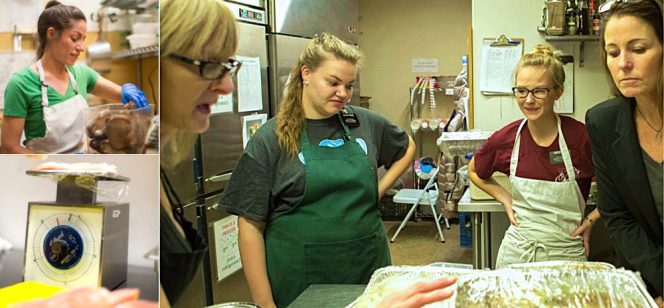Mandatory Food Waste Ordinance Adoption
In July 2018, the Metro Council — the regional governing body in the Portland, Oregon Metro region (Metro) — adopted a new policy requiring the largest food service businesses to separate their food scraps from other garbage starting in 2020; smaller food service businesses will be phased into the policy over the following three years. The policy required city and county governments, which oversee the collection of garbage and recycling, to take actions by July 31, 2019, to ensure that food scraps collection services are available to businesses in their communities starting in 2020. As of early January, 19 of the 21 jurisdictions required to adopt the mandatory food waste ordinance have complied with the requirement to ensure collection is available. Local implementation plans are due February 1, with official program rollout in March. Metro has allocated funds to local governments to hire staff to provide businesses one-on-one assistance and cover 50% of the cost of internal collection containers.Metro’s policy is focused on businesses and organizations that process, cook or sell food and generate large quantities of food scraps: restaurants, grocery stores, food manufacturers and processors, hospitals, hotels, nursing homes, colleges and universities, K-12 schools, catering, corporate cafeterias and others. This policy will be phased in and affect about 3,000 businesses in the food industry in the greater Portland area. Beginning on March 31, 2020, businesses that generate 1,000 pounds (lbs)/week or more of food scraps (the equivalent of four 60-gallon roll carts) per week will be required to separate their food scraps for collection. That ratchets down to 500 lbs/week or more (equal to two 60-gallon roll carts) on March 31, 2021. Beginning on September 30, 2022, businesses that generate 250 pounds/week or more of food scraps (the equivalent of one 60-gallon roll cart), along with K-12 schools, will be required to separate their food scraps for collection. Prevention and donation of edible food also are incorporated into Metro’s program (see FoodWasteStopsWithMe.org).
January 31 NEBRA PFAS Update Webinar
Registration is open for the North East Biosolids & Residuals Association’s (NEBRA) Webinar —NEBRA PFAS Update, Including PFAS & Biosolids Literature Review — on Friday, Jan. 31, 2020 at 12:00 Noon Eastern/9:00 Pacific. Ned Beecher (NEBRA) and Michael Rainey, former biosolids coordinator at the New Hampshire Department of Environmental Services, will present an update on PFAS & biosolids/residuals, including Mike’s recently completed, updated biosolids & PFAS literature review (available on the “research” subtopic PFAS page on the NEBRA website). RSVP to Ned Beecher. Recommended donation for webinar: $0 to $40, donated via the “Donate/Pay Fee” button at nebiosolids.org (click “Donate”, put “Jan. 31 webinar” in the note).
Taco Bell Commits To Packaging Reboot
Taco Bell rang in the New Year with a global sustainable packaging commitment to make all consumer-facing packaging recyclable, compostable or reusable by 2025 worldwide. Recycling and/or composting bins will be added to all restaurants, where infrastructure permits. PFAS, phthalates and BPA will be removed from all consumer-facing packaging materials.











